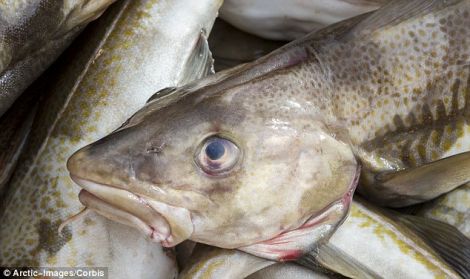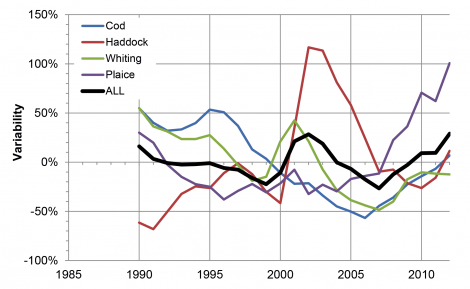News / Report unveils true health of fish stocks
NORTH Sea and west of Scotland fish stocks are far healthier than previously thought, according to a new study by Shetland’s NAFC Marine Centre.
The centre’s senior policy advisor Dr Ian Napier has examined all fish stocks around Scotland and discovered that most of them have increased substantially following an overall decline up until 2000.
He also concluded that the overall fish stock combining all species remained relatively stable despite large fluctuations in individual species.
The report has been seized upon by fishing leaders who have been angered by celebrity chef Hugh Fearnley-Whittingstall’s Fish Fight campaign against the level of catching taking place in UK waters.
Napier said he was surprised by the results he found after analysing a wide range of scientific reports published by the International Council for the Exploration of the Seas (ICES) whose advice underpins the annual quota setting talks in Brussels.
His study shows that North Sea cod stocks more than doubled between 2006 and 2012, while the quantity of plaice in the North Sea has tripled since 2004 and hake quadrupled in number over five years from 2006.
The increase can be partly explained by the 64 per cent decrease in fishing effort over the first decade of the millennium, which led to a 43 per cent drop in the amount of fish caught.
Napier said previous studies had focused on individual species and this was the first time a holistic view of the overall whitefish stock in Scottish waters had been taken.
“The extent to which some of these stocks had increased and also the extent to which they seemed to balance each other out came as a bit of a surprise,” he admitted.
“It did change my perception, but the industry will probably say that it confirmed what they already knew.”
Become a member of Shetland News
He gave the example of the west of Scotland prawn stock reducing in recent years perhaps as a result of the increase in cod, which feed on them.
Shetland Fishermen’s Association chairman Leslie Tait welcomed the report, saying it countered the growing public perception that fish stocks were in a perilous state.
“These figures clearly show that far from being in a state of crisis, Scottish fish stocks are in a far healthier state than is often portrayed.
“This has been achieved through the innovations and substantial sacrifices made by Shetland and Scottish fishermen.
“We hope that everyone will recognise what has been achieved over the last decade.
“These figures show that consumers can have confidence in eating Scottish fish as a healthy and sustainable part of their diet.”
Scottish Fishermen’s Federation chief executive Bertie Armstrong added: “At a time when there is much alarmist and sensationalist misinformation about the state of our fish stocks, this report gives the true story of recovering seas and much reduced fishing effort.
“It will also give the public the reassurance that they can purchase Scottish seafood safe in the knowledge that it is being sustainably harvested under the careful stewardship of our hardworking fishermen.”
The full report can be found here.
Become a member of Shetland News
Shetland News is asking its readers to consider paying for membership to get additional perks:
- Removal of third-party ads;
- Bookmark posts to read later;
- Exclusive curated weekly newsletter;
- Hide membership messages;
- Comments open for discussion.
If you appreciate what we do and feel strongly about impartial local journalism, then please become a member of Shetland News by either making a single payment, or setting up a monthly, quarterly or yearly subscription.

























































